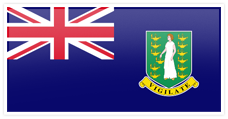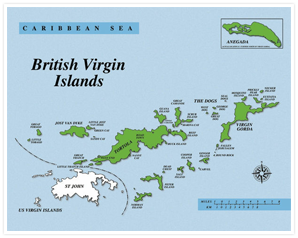British virgin islands


Jaunt to the British overseas territory of British Virgin Islands that is constituted with several Caribbean islands and cays especially with islands like Tortola, Virgin Gorda, Anegada and Jost Van Dyke.The place was earlier inhabited by Arawak till the English came to dwell in this place during the year of 1672. Discover Nature's little secret with rich cultural legacy where each island has a different story to tell. Unfold the legendary secrets from the shipwreck tales to the sea plunders, from the pirate's treasury hunt to the customary tax payment with huge salt bags, is something which this place love to share with.
British Virgin Islands is nestled in the midst of Caribbean Sea and the North Atlantic Ocean, lying to the east of Puerto Rico, being a part of the West Indies in the Leeward Island chain. Amidst the grandeur of the undisturbed natural beauty this island is surrounded with dramatic green hills and tropical dense forests , white sand beaches filled with plethora of marine life, volcanic islands with rugged terrain that leaves behind a magical aura as you get intoxicated by its sensuous splendor.
Offshore baking in British virgin islands
The British Virgin Islands is one if the world's leading finance centres, offering leadership, the integrity of a progressively governed British Dependant Territory and a sophisticated democratic and stable society. There is a commitment to the investor's right to privacy and a professional banking, legal, accounting, trust and management services. With the private sector, the Government continues to accept innovative financial services concepts, consistent with its priority of protecting and enhancing the reputation of the finance industry.
British Virgin Island Trusts
Trust Management has been a major activity in the British Virgin Islands for 30 years or more. Originally the Trust was used primarily by wealthy individuals from the major common law countries, but it is now accepted as a major technique of asset protection in all parts of the world. Trusts in the BVI have a basis in common law, The trust law of the British Virgin Islands is based on English trust law. BVI Trusts are formed under the Trust Ordinance 1961 (based on the English Trustee Act 1925), as updated and amended by the Trustee Amendment Act 1993.
Since the 1993 Act, there is no requirement for registration of trusts in the BVI, and there is no public disclosure of information regarding trusts and trustees are exempt from any need to file annual returns and from any other reporting requirements. Trust duty of $50 is payable on each trust instrument, which is achieved by buying and affixing stamps, creating no record. The Amendment Act introduced a fixed perpetuity period not exceeding 100 years.
The majority of BVI trusts are exempt from all taxes provided there are no beneficiaries resident in the BVI, and that the trust does not conduct any business in the BVI or own any land in the jurisdiction. The Amendment Act provided for the appointment of a 'protector of trust', effectively a supervisor of the trustee(s), and also managing and custodian trustees. A company offering trust services must obtain a licence under the Banks and Trust Companies Act 1990 and conform to various conditions.
In 2003 the BVI enacted legislation implementing proposals made by the Society of Trust and Estate Practitioners (STEP) to reform trust law in the BVI. Three separate statutes will modernise BVI trust law. Further, the BVI Special Trust Act creates the �VISTA� trust. The Act allows a person to set up a trust to hold shares of an underlying BVI international business company without the usual constraints of English trust law.
Taxation
In the British Virgin Islands there is no capital gains or capital transfer tax, no inheritance tax, and no sales tax or VAT. The main tax for resident companies is income tax; there are also stamp duties on certain transactions, and property taxes. IBC are exempt from income tax and stamp duty.
Banking
Banks are regulated under the Banks and Trust Companies Act 1990, and supervised by the Inspector of Banks, Trusts and Company Managers. Banks are licensed in three categories: A General Banking License permits all forms of banking activity; A Class 1 Restricted Banking License permits international business only; A Class 2 Restricted Banking License permits the conduct of banking business only with counterparties named in the licence.
The banking sector has been limited to a small number of international banks as part of the jurisdiction�s determination to exclude money-laundering. There are currently 7 banks in the BVI, including Barclays Bank and Chase Manhattan.
Employment Law in the BVI
Labour regulation in the BVI is very light. There are no or trade unions in the BVI. Most pay bargaining is carried out directly between employers and employees. There is legislation setting a low minimum wage.
In order to work in the BVI, a work permit is needed, except for 'Belongers', naturalised citizens and holders of a certificate of residency. Work permits are issued only when there is no suitable local applicant for the job.



